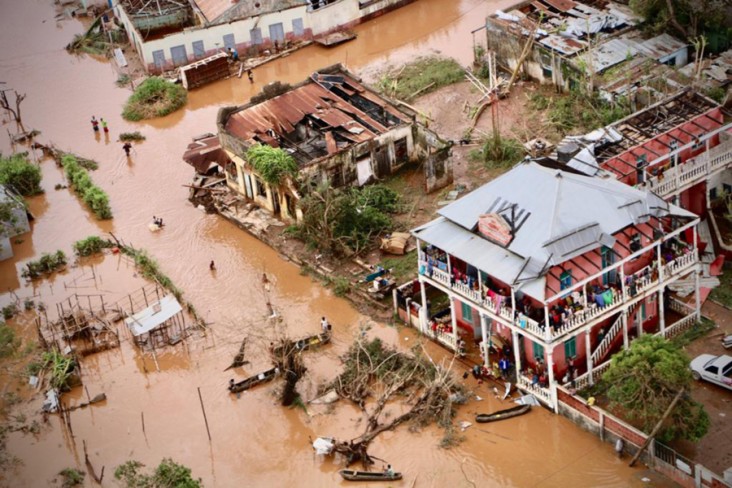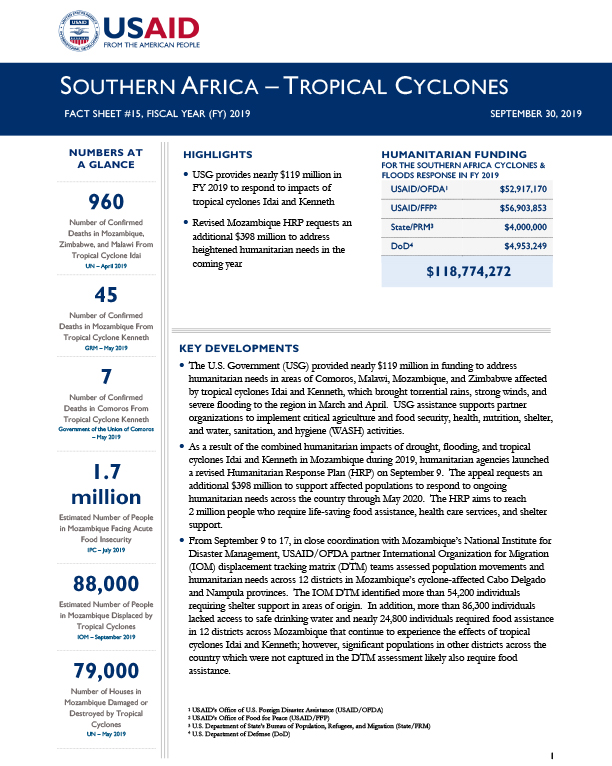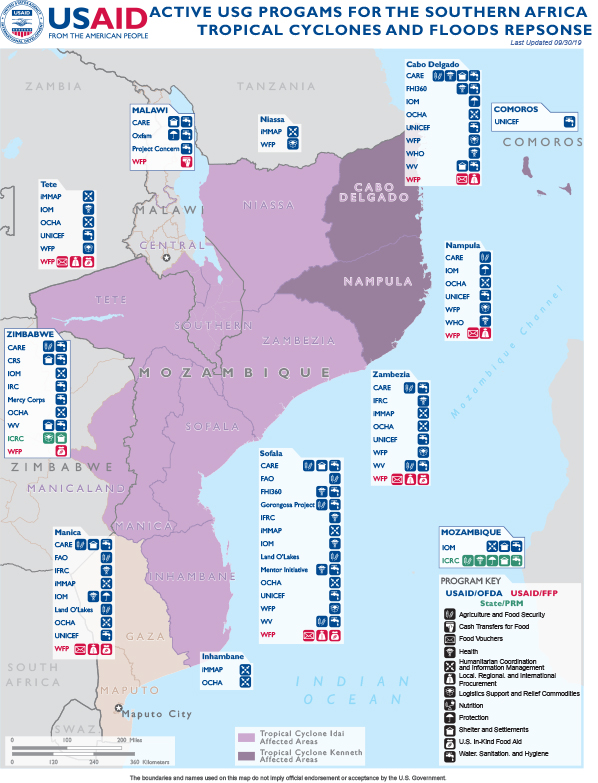- What We Do
- Agriculture and Food Security
- Democracy, Human Rights and Governance
- Economic Growth and Trade
- Education
- Environment and Global Climate Change
- Gender Equality and Women's Empowerment
- Global Health
- Humanitarian Assistance
- Transformation at USAID
- Water and Sanitation
- Working in Crises and Conflict
- U.S. Global Development Lab
Speeches Shim

Latest Cyclones Fact Sheet
Southern Africa Tropical Cyclones Map - 09-30-2019 ![]() (pdf - 2 MB)
(pdf - 2 MB)
view text version [pdf, 236kb]
Key Developments
USAID's Office of U.S. Foreign Disaster Assistance (USAID/OFDA) is responding to catastrophic flooding caused by Cyclone Idai in Mozambique, Malawi, and Zimbabwe, as well as Cyclone Kenneth in Mozambique and Comoros.
Tropical Cyclone Idai made landfall over Mozambique’s city of Beira on March 15, producing torrential rains and strong winds and severely affecting populations in Manica, Sofala, Tete, and Zambézia provinces. The cyclone also caused significant flooding, damage and destruction of property and infrastructure, and resulted in numerous deaths in southern Malawi’s Chichawa, Nsanje, Phalombe, and Zomba districts and Zimbabwe’s Manicaland and Masvingo provinces. The same weather system had previously brought heavy rains that caused significant flooding in Malawi and Mozambique in early March, before gaining strength in the Mozambique Channel and developing into a tropical cyclone.
U.S. Ambassador to Malawi Virginia E. Palmer and U.S. Ambassador to Mozambique Dennis W. Hearne declared disasters due to flooding on March 10 and March 15, respectively. Ambassador Hearne declared a second disaster on March 19 due to the impact of Tropical Cyclone Idai in Mozambique. On March 18, U.S. Ambassador to Zimbabwe Brian A. Nichols declared a disaster due to the impact of Tropical Cyclone Idai. In response, USAID supported NGO partners to deliver urgent assistance, including providing relief commodities and conducting shelter and WASH interventions, for affected populations.
On April 25, Tropical Cyclone Kenneth made landfall over Mozambique’s Quissanga District, Cabo Delgado Province, with winds estimated at 140 miles per hour and producing torrential rains in Cabo Delgado and Nampula Province. On April 26, Ambassador Hearne declared a disaster due to the impact of Tropical Cyclone Kenneth in Mozambique. On May 8, U.S. Ambassador to the Union of Comoros and Madagascar Michael P. Pelletier declared a disaster in the Union of Comoros due to the effects of Tropical Cyclone Kenneth, which passed north of the Union of Comoros’ Grande Comore Island on April 25, producing strong winds and torrential rains in the country prior to reaching Mozambique.
The U.S. Government provided nearly $119 million in funding to address humanitarian needs in areas of Comoros, Malawi, Mozambique, and Zimbabwe affected by tropical cyclones Idai and Kenneth. USG assistance supports partner organizations to implement critical agriculture and food security, health, nutrition, shelter, and water, sanitation, and hygiene activities.
Background
USAID has provided nearly $110 million to support disaster response efforts in Comoros, Malawi, Mozambique, and Zimbabwe in 2019. USAID funding initially focused on emergency response efforts and immediate support for affected communities; more recently, USAID partners and other relief organizations have transitioned from emergency relief to longer-term recovery and resilience-building programs. USAID activated a Disaster Assistance Response Team (DART) on March 20, which traveled to Mozambique to oversee USAID response activities; the DART was deactivated on May 18 as the initial emergency phase of the disaster concluded.



Comment
Make a general inquiry or suggest an improvement.